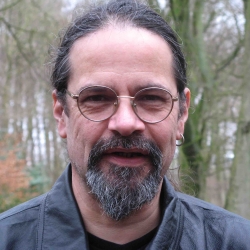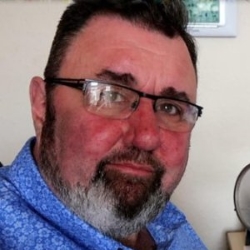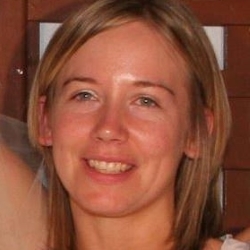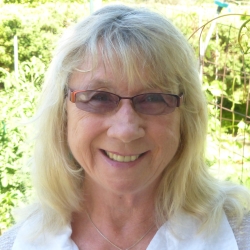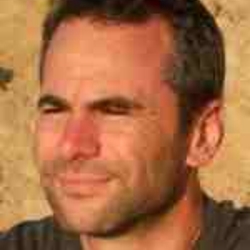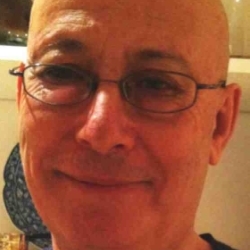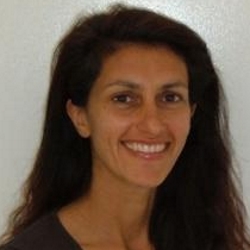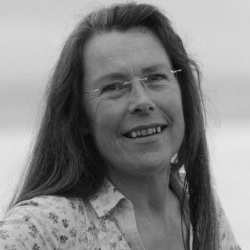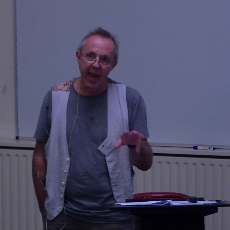Loading
Read MoreInto the Chaos with the Person Centered Approach – Peggy Natiello
Loading
Read MoreFacilitating Synergies: A Step Towards An Evolutionary Shift – Gill Wyatt
Loading
Read MoreAll Inclusive: Developing Dialogue in a Diverse World – Karl Gregory
Loading
Read MoreThe Role of Personal and Community Power in Shifting Cultural Consciousness – Peggy Natiello, Colin Lago, Carol Wolter-Gustafson, & John Wilson
Loading
Read MoreCounselling Class and Politics: Undeclared Influences in Therapy – Rory Lees-Oakes
All of our interactions with others are dictated by our own person politics, and counselling is no exception to this rule.
In this interview, Lecturer and Counsellor Rory Lees-Oakes , re-visits some of the ideas first explored by Anne Kearney in her seminal book, ‘Counselling class and Politics” first published in 1996.
Rory will explore some of the ‘Undeclared influences in therapy’ described in the book, as well as a reflection of more contemporary issues that face therapists working in ,what has been described as an Age of Austerity.
Read MoreNorthern Ireland Conflict, Trauma, and Mental Health – Kristine Abercrombie
I would love to share my own personal experience of growing up in Northern Ireland during ‘the troubles’, leaving just as the peace process began, and returning four years ago as a clinical psychologist to work with people in my community affected by the trauma of this period. The conflict in Northern Ireland, although steeped in much deeper history, started in the late 1960s, continuing until the 1990s, with dissident republican and loyalist groups continuing to attempt to upset the peace which has been obtained.
Read MoreCreative Approaches to Conflict and Conciliation from the Perspective of Dance Movement Psychotherapy – Sissy Lykou
In this event, we will explore non-verbal means of dialogue via the expressive use of the body and movement. Often, frustrations boil over into anger when someone can’t find ‘the right words’. Similarly, when there is a real chance of conciliation, it doesn’t work out because logos (the word) isn’t adequate to carry it forward.
Read MoreCatastrophe or Transformation? How Humanistic Practice Makes a Critical Difference to Humanity’s Future – Maureen O’Hara
It’s no news to anyone who reads a newspaper or peruses the Internet that there is no shortage of bad news. Sometimes it is hard to face just how bad things seem to be. But though I have dark days like everyone else and despite all the dire predictions, I believe the world can be better and I believe that psychotherapy and other social practices aimed at human growth and existential freedom has a role to play in creating a sustainable humane future.
I owe my faith in the future to my temperament, my working class Yorkshire family, a social system in postwar Britain that made it possible for me to get a first rate education for free and of course a lot of help and dumb luck. It was luck that brought Carl Rogers into my life and exposed me to the emancipatory philosophy and practice of humanistic psychology. I first experienced humanism in action in a person-centered encounter group. What I experienced convinced me that, as Carl Rogers said, given the right conditions all human beings have within them vast resources with which to face their threats and transform their circumstances.
Humanistic practice provides us with transformational approaches to providing these conditions. Let’s talk about how we can provide them on a cultural scale.
Read MoreSocial Change from the Counselling Room – Mick Cooper
In 2005 I became involved in organising workshops at person-centred conferences on the person-centred approach and social change. I was always struck by how many people attended these workshops and how passionate they were about this issue. It seemed that many people, like me, had come into the person-centred approach from left wing backgrounds and were looking to see how stronger links could be forged between the person-centred approach and a progressive political agenda.
Read MoreLearning from Our Differences: Drawing from Our Overarching Humanity – Kristine Abercrombie
To say we are all unique does not really capture the complexity and true ‘one-of-a-kind’ we all are. Regardless of what theoretical orientation or orientations we all practice from, or our training background, all of us counsellors / psychotherapists / clinical psychologists are taught and deeply know the importance of our own self awareness, both for our therapeutic relationships and self-care.
Words such as difference and diversity, transference and counter transference, narratives, scripts and stories, authenticity and individualisation are regularly discussed. We are all trained and experienced in sitting with our clients differences, vulnerabilities and uniqueness, but it is inherently and understandably more difficult to sit with our own.
Read MoreShifting Consciousness and Social Change – Peggy Natiello, Carol Wolter-Gustafson, Keemar Keemar, & John Wilson
Rogers predicted that ‘ persons of tomorrow’ would be “…at home in a world that consists only of vibrating energy, a world with no solid base, a world of process and change…..” Rogers optimistically welcomed change. ”I take pleasure in trying to discern the directions in which we are moving…we are going through a transformational crisis from which we and our world cannot emerge unchanged.”
The radical changes Rogers intuited are upon us, and we suspect they will call for a shift in consciousness. Going Global, November 2015 is designed as a person-centred community that will dwell together for 5 days, and attempt to envision ways of coping creatively with the already arriving challenges.
Read MoreMaking a Difference: How to Realise Your Political Hopes and Ambitions – From Idealism to Realism – Andrew Samuels
I will look at things like people’s early political memories, the sources of their political ideas and commitments, the level and nature of their energy for social and political causes, the construction of a ‘political journal’, the shadow aspects of their idealism – and maybe other things.
Read MoreTranscultural Counselling as a Way to Contribute to Peace Reconstruction in Post Conflict Countries – Sandra Grieve & Lucia Berdondini
Sandra and Lucia talk about their experience facilitating counselling skills courses in Afghanistan, India and Angola. Describing their learning around building relationships with the organisations that will make the courses possible and how they approached the learning with the students.
Read MoreDwelling Together Around Global Issues – Peggy Natiello, Carol Wolter-Gustafson, Keemar Keemar, & John Wilson
….total reliance on dispassionate analytical rationalism is a certain path to the wrong answer…..the real pursuit of learning is to discover the wholeness/unity of life (Senge et al, 2004).
The future is unknown and unknowable, and we can no longer depend on historic ways of making sense to find our way forward. We must ‘imagine’ a creative way to move through the chaos, and we believe that a person-centered group, focusing on the theme of global issues may shift consciousness and yield new truths.
Read MoreThe Effect Of Social Class/Status on Therapy with Children & Young People – Simone Daniels
Raising our awareness of how social class/ status can impact our own lives, the lives of our young clients and the therapeutic relationship.
Read MoreGoing Global: Why Bother? – Keemar Keemar, Colin Lago, Peggy Natiello, Carol Wolter-Gustafson, & John Wilson
In this event Peggy, Carol, Colin, Keemar & John will talk about why they are putting so much time and energy into sustaining the Large Person-centred Group experience.
With so many people now convinced that whatever they do, or how hard they try, their energy will have no impact. Why bother to put any energy into groups. community relationship and Global Consciousness?
Read MorePsychotherapy & Global Transformation – Maureen O’Hara
Loading
Read MoreMe, My Family, My People: Social Identity and Radical Psychiatry in Transactional Analysis – Karen Minikin
The radical psychiatry movement in the late 1960’s and 1970s proposed all mental difficulties are forms of alienation.
At the social level, this means feeling isolated from our work and relationships. Internally, we may feel psychologically alienated from different parts of our self.
This #TATuesday discussion explores the significance of social identity in TA and the ways in which radical psychiatry can inform our thinking and practice.
Read MoreWhy is Psychotherapy not changing the world? – Andrew Samuels
In this clip Andrew talks about why Psychotherapy has not yet changed the world. [divider] Andrew Samuels About Andrew Samuels Andrew Samuels is a university professor,…
Read MoreTherapy and Politics with Professor Andrew Samuels
Many therapists are passionate about politics and issues of social justice. How useful is therapy thinking in terms of addressing political and social issues? Andrew has been writing about this for many years in books such as The Political Psyche and Politics on the Couch. In this webinar, he will look at issues such as leadership, violence and war, and ecopsychology. In particular, he will focus on economics and the question of inequality that is being much discussed at the moment. In May, Andrew had a letter published in The Guardian which we can discuss.
Read MorePersonal Growth And Societal Impact: The PCA as Ethics, Philosophy and Psychology for Personal and Social Change – Peter F. Schmid
The world faces substantial challenges: from globalization to climate change and the planet’s limited resources, from religious warfare and terrorism to new ways of inter- and intra-national relationships and community, partnership and ‘family’ building – to only name a few.
This calls for a considerable change in the self-understanding of us humans. I am convinced that we have the potential to deal with the encounters ahead constructively, if we indeed understand and approach them as encounters, we have to face and are able to do so.
Read MoreHope for this Hour: Watch Out for Angry Flying Cows – Carol Wolter-Gustafson
Today, it takes just an instant to be electronically connected to human suffering half way around the world. Amidst endless streams of variously sourced information, we absorb the world, and make choices in response. Amidst cynicism, corporate dominance and competing narratives, how is it possible to “be the change we want to see in the world?” What are we to do? How is it possible for us to have hope for this hour in which we live?
Read MoreWe Start From Where We Are – Dot Clark
Our theme, ‘Going Global’, can easily arouse anxiety and helplessness when we consider the scale of the challenges facing the world today. However, “we start from where we are”, even when that includes despair and panic, by endeavouring to approach our experience with compassion and acceptance. The Person-Centred community has much to contribute here and now, especially if we can reach out beyond the confines of therapy into the world.
Read MoreWe’ve Had 75 Years of Carl Rogers and the World’s Getting Worse – Richard Baugham
Loading
Read More


